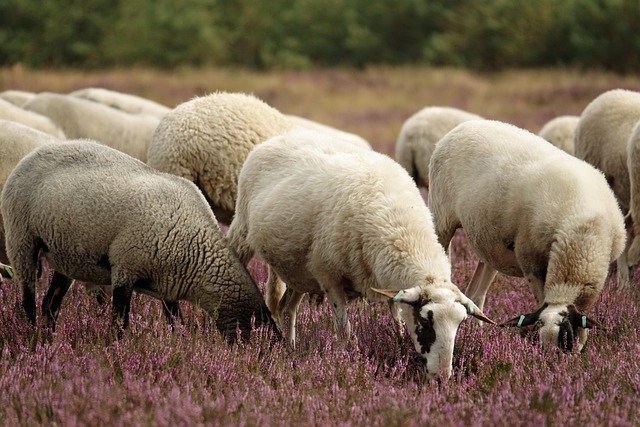The Surprising World of Sheep Intelligence
From their fluffy appearance to their gentle bleating, sheep have long been associated with simplicity and docility. However, recent scientific studies are challenging these stereotypes, revealing a hidden depth of intelligence and cognitive abilities in these woolly creatures. This article delves into the fascinating world of ovine cognition, exploring how sheep are rewriting the book on animal intelligence.

The Evolution of Sheep Intelligence
Sheep have been domesticated for over 10,000 years, evolving alongside humans and adapting to various environments. This long history of domestication has played a crucial role in shaping their cognitive abilities. As sheep faced new challenges in human-controlled environments, they developed problem-solving skills and social intelligence to navigate these complex situations.
Research suggests that the ancestor of modern sheep, the mouflon, already possessed a degree of intelligence necessary for survival in the wild. Domestication further honed these abilities, with sheep developing skills particularly suited to interacting with humans and thriving in agricultural settings.
Facial Recognition: A Surprising Skill
One of the most remarkable aspects of sheep intelligence is their ability to recognize and remember faces, both of their own species and humans. A study conducted at the University of Cambridge found that sheep can recognize up to 50 individual faces and remember them for up to two years.
This facial recognition ability is comparable to that of monkeys and even humans in some aspects. Sheep can identify faces from different angles and even distinguish between expressions, showcasing a level of visual processing previously thought to be limited to primates.
Problem-Solving Prowess
Contrary to popular belief, sheep exhibit impressive problem-solving skills. When faced with obstacles or challenges, they demonstrate the ability to think critically and find solutions. In one study, sheep were presented with a complex maze. Not only did they navigate it successfully, but they also showed improvement in their performance over time, indicating learning and memory capabilities.
Another experiment involved a simple puzzle box containing food. Sheep quickly learned to use their mouths and hooves to manipulate the mechanism and access the reward, showcasing their adaptability and cognitive flexibility.
Social Intelligence and Emotional Complexity
Sheep are highly social animals with complex emotional lives. They form strong bonds within their flocks and can recognize individual sheep even after long periods of separation. This social intelligence extends to their interactions with humans as well.
Studies have shown that sheep can distinguish between friendly and threatening human faces, and they respond differently to familiar and unfamiliar human handlers. This ability to read human emotions and intentions demonstrates a sophisticated level of social cognition.
Implications for Animal Welfare and Research
The growing body of research on sheep intelligence has significant implications for animal welfare practices and our understanding of animal cognition. As we recognize the depth of sheep intelligence, it becomes increasingly important to provide them with environments that stimulate their cognitive abilities and meet their emotional needs.
Furthermore, studying sheep cognition offers valuable insights into the evolution of intelligence across different species. By challenging our preconceptions about which animals are capable of complex thought, we open new avenues for research in comparative psychology and neuroscience.
The Future of Sheep Studies
As our understanding of sheep intelligence continues to grow, researchers are exploring new frontiers in ovine cognition. Current studies are investigating sheep’s potential for abstract thinking, their ability to plan for the future, and their capacity for self-awareness.
These ongoing studies not only promise to further revolutionize our perception of sheep but also contribute to broader discussions about animal consciousness and the ethical treatment of livestock. As we uncover more about the inner lives of these woolly wonders, we may need to reassess our approach to animal husbandry and conservation.
The surprising intelligence of sheep challenges us to reconsider our assumptions about animal cognition. As we continue to explore the depths of ovine intelligence, we’re not only gaining a new appreciation for these gentle creatures but also expanding our understanding of the diverse and complex world of animal minds. The humble sheep, it seems, has much to teach us about the nature of intelligence itself.





